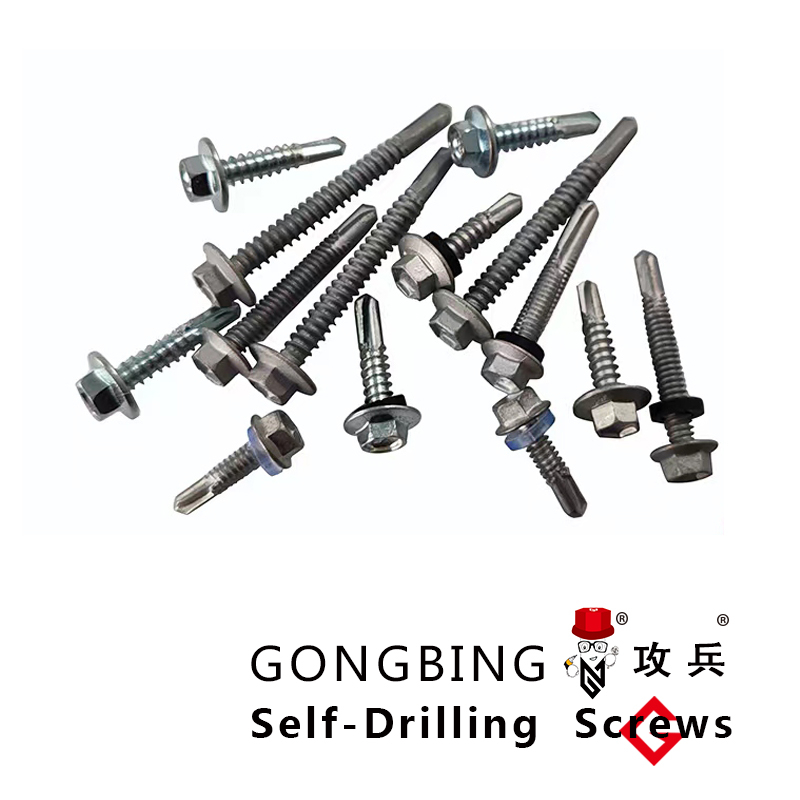Black Self-Tapping Metal Screws for Durable Construction and Easy Installation
Black Self-Drilling Metal Screws A Comprehensive Overview
In the realm of construction and metalworking, the fasteners we choose can significantly impact both the efficiency and the durability of our projects. One such fastener that has gained considerable popularity is the black self-drilling metal screw. This article explores the characteristics, benefits, applications, and potential drawbacks of these innovative fasteners to provide a comprehensive understanding for builders, engineers, and DIY enthusiasts alike.
Characteristics of Black Self-Drilling Metal Screws
Black self-drilling metal screws are specially designed screws that feature a sharp, drill-like point, allowing them to penetrate materials without the need for pre-drilling holes. These screws are crafted from high-strength alloy steel, which gives them superior durability and resistance to stripping and breaking under load. The black aspect of these screws typically refers to their black oxide finish, which not only enhances aesthetic appeal but also improves corrosion resistance, making them suitable for outdoor applications or in environments where moisture is present.
Benefits of Using Black Self-Drilling Metal Screws
One of the primary advantages of black self-drilling metal screws is their efficiency in installation. With their drill-point design, operators can save significant time and labor costs, as there is no need for pre-drilling. This feature makes them especially valuable in large-scale construction projects where time is a critical factor.
Additionally, these screws provide exceptional holding power. Their threaded design allows them to grip materials securely, maintaining a strong connection even under high-stress conditions. This characteristic ensures the longevity and reliability of the joints they create.
Moreover, the black oxide coating on these screws provides an additional layer of protection against rust and corrosion. This feature not only extends the lifespan of the screws themselves but also enhances the overall integrity of the structures in which they are used.
Applications of Black Self-Drilling Metal Screws
black self drilling metal screws

The versatility of black self-drilling metal screws makes them ideal for numerous applications. They are widely utilized in metal roofing and siding installation, where rapid assembly is essential due to weather considerations. These screws can easily penetrate multiple layers of metal, ensuring a tight fit and robust protection against the elements.
In addition to roofing, these screws are commonly found in the construction of metal buildings, bridges, and even in automotive manufacturing. Their ability to join metal parts without the need for welding or other complex bonding methods enhances their appeal in an industry that values efficiency and strength.
Black self-drilling screws are also favored in DIY projects. Whether working on outdoor furniture, garden installations, or repair tasks, homeowners benefit from the ease of use and reliability these fasteners provide. Their aesthetic finish is also a bonus for projects where the fastener's appearance matters.
Drawbacks and Considerations
Despite the numerous benefits, there are some considerations to keep in mind. While black self-drilling metal screws are designed for specific applications, they may not be suitable for all materials. For instance, in applications involving softer woods, using self-drilling screws can lead to splitting or other structural issues. In such cases, traditional wood screws or other types of fasteners might be more appropriate.
Additionally, while the black oxide finish offers corrosion resistance, it is not entirely foolproof. In extremely corrosive environments, such as coastal areas, it may be wise to consider screws with a different coating, such as zinc or stainless steel, to ensure maximum protection.
Conclusion
In summary, black self-drilling metal screws are an invaluable asset in the toolkit of builders, engineers, and DIY enthusiasts. Their unique design, coupled with their efficiency and aesthetic appeal, makes them suitable for a wide array of applications. While there are considerations regarding their use and potential environmental limitations, the benefits tend to outweigh the drawbacks for most applications. As with any construction material, careful consideration and assessment of specific project requirements will ensure the right fastener choice is made, facilitating successful and enduring results.
-
Weatherproof Plastic Expansion Anchors for OutdoorNewsJun.06,2025
-
Sustainability in the Supply Chain: Eco-Friendly TEK Screws ProductionNewsJun.06,2025
-
Load-Bearing Capacity of External Insulation FixingsNewsJun.06,2025
-
Double Head Bolts: Enhancing Efficiency in Industrial MachineryNewsJun.06,2025
-
Corrosion Resistance in Chipboard Screws: Coatings for Wholesale DurabilityNewsJun.06,2025
-
Butterfly Toggle Bolts : Enhancing Structural ResilienceNewsJun.06,2025
